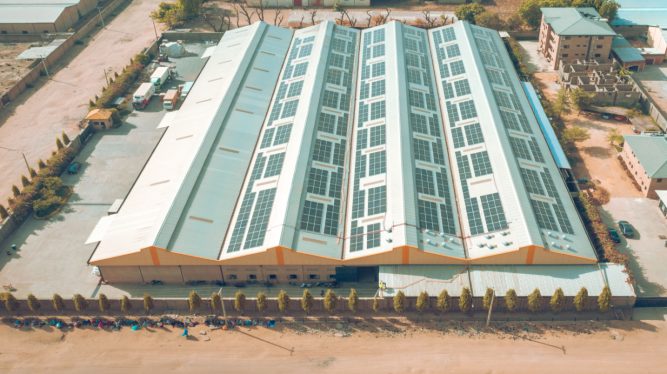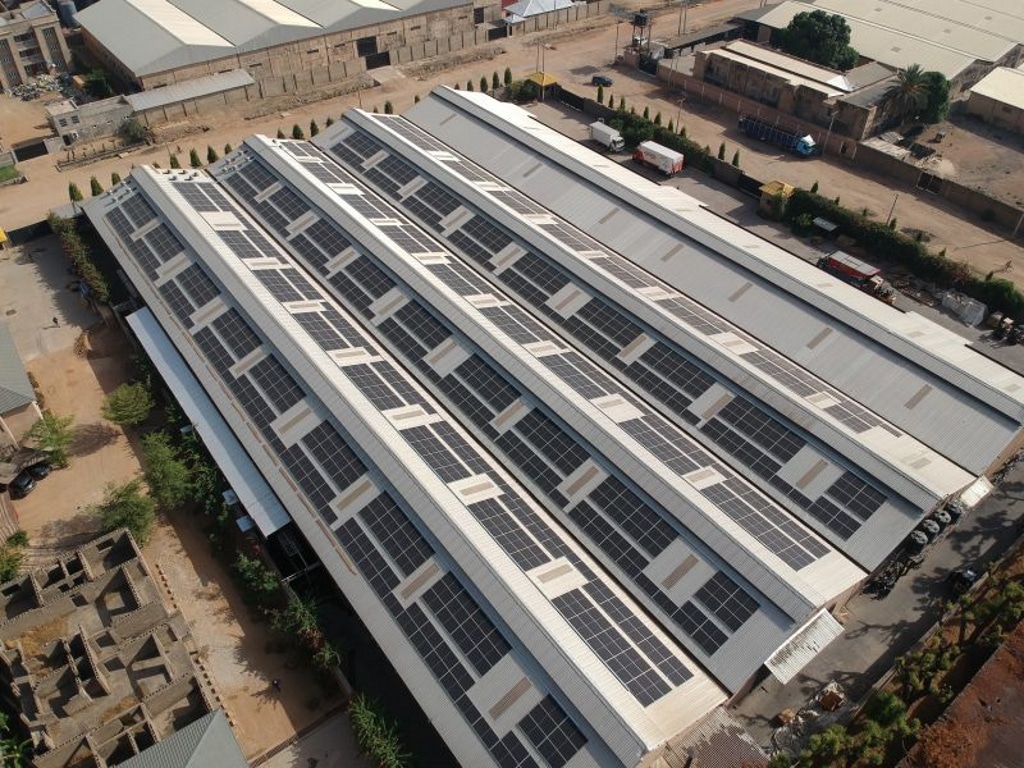With the increasing adoption of renewable energy use globally, a new player has emerged in the solar photovoltaic (PV) market for commercial and industrial (C&I) customers in Africa.
Westa.Solar was recently launched as a joint venture between Oolu Solar, a solar home systems provider and RP Global, a renewable energy investment company.
The new company offers solar systems that range from 50kW to 5MW and has commenced operations in Nigeria. Last month, it deployed its first rooftop plant at Kano-based Petrichor Industries, a packaging products manufacturing company and subsidiary of the Petrichor Group.
Jointly financed by Westa.Solar and the UK Foreign & Commonwealth Development Office, the 500 Kilowatts peak (kWp is the peak power of a PV system) solar power plant provides Petrichor with, significantly, almost a quarter of its electricity needs in a power purchase agreement (PPA) with Westa.Solar.
A solar PPA is an arrangement in which a third-party developer owns, operates, and maintains a PV system that is located on an industrial customer’s property. The latter then buys the electric output from the solar system for a predetermined period and at a set price.

The plant at Petrichor represents a perfect start to life for Westa.Solar, a company that has its sights set on the larger West African market. But its debut project was not without challenges, no thanks to the ongoing coronavirus pandemic that continues to disrupt business operations.
“We started the project at the peak of the Covid-19 pandemic last year, which wasn’t the best time for procuring and shipping from anywhere in the world. Getting the equipment out of China, shipping, and then clearing them at the port was challenging. We also experienced tough delays at the port in Lagos,” Westa.Solar’s Country Manager in Nigeria, Kolawole Akinboye, told TechCabal in an interview.
Things kicked into overdrive once the logistics component of the project was resolved and the equipment got to the site in Kano. By then, Westa.Solar could manage the construction process, enabled by its technical know-how ability and the partner it was working with.
Helping businesses save cost and hedge energy prices
Many businesses in Africa grapple with expensive electricity tariffs, frequent power outages, and load shedding. These issues limit production and increase operating and maintenance costs, thereby hindering growth. In Nigeria, enterprises rely on diesel generators to make up for the significant lapse in power supply.
Westa.Solar’s customised solutions for commercial and industrial businesses can help overcome some of the power-related challenges businesses face and in the process, provide direct savings and a hedge on energy prices for its clients.
The decreasing costs of solar systems, relative to either grid or diesel generators, have helped on-site solar microgrids become economically viable alternatives for commercial and industrial use.
According to a 2017 Bloomberg New Energy Finance report, on-site solar power is cheaper than the electricity tariffs paid by C&I companies in seven of the 15 Sub-Saharan Africa markets studied. While electricity tariffs ranged from $0.028/kWh in Ethiopia to over $0.232/kWh in Senegal, a 250kW solar project cost between $0.10-0.14/kWh in the countries assessed.
The report predicts that the cost of on-site solar will decline further to about $0.05/kWh by 2030, which will only add to its appeal to commercial users.
“In addition to the cheaper rates paid for solar, as an industrial company, coming into a long-term agreement with us allows you to predict what your energy cost would be over the next few years instead of having to face rising diesel prices at some point in the future. So yes, our plants serve as a hedge for energy costs for companies,” Akinboye said.
The power deal with Westa.Solar is expected to see Petrichor reduce dependence on Nigeria’s unstable national grid, save money – as much as ₦235 million over the next 10 years – on electricity bills and minimise its carbon footprint by cutting its use of diesel.
More projects and expansion
On the back of its successful installation of the massive 500kWp plant in Nigeria, Westa.Solar plans to develop and implement a large pipeline of C&I solar projects across West Africa.
The company currently has no fewer than 30 companies that it has opened discussions with and is in advanced negotiations with at least seven of them. The country manager expects to announce more partnerships within the next few months.
“This is the first of what we hope will be many solar power projects for C&I companies,” Akinboye said.
“We’ve been getting calls from various people because of the Petrichor project, because of how successful it was. We have people that are already calling to say, ‘Wait, can you look at my own facility? What can you do with us?’ So it is a door-opener because it opens the door for more success.”
But for now, Westa.Solar is focused on establishing itself in Nigeria, a market that is saturated but offers many opportunities for solar energy providers.
“Nigeria has a huge unmet need, so we are focusing on conquering the market. Then in the next year or two, we start our expansion plans across West Africa.”
Africa is rich in renewable resources but has an unmet power demand. Many providers are currently moving to fill this gap and, in the process, help to diversify sources for generating electricity in Africa away from environmentally harmful fossil fuels.
Through its on-site grids, Westa.Solar expects to support its clients while increasing the penetration of renewable energies across the region, yet reaching an inflection point.
Over the next five to ten years, the company aims to become the leading commercial and industrial renewable energy provider in the region. “That is our goal and that is where we are going. We’re changing the narrative of commercial and industrial projects in Africa.”
If you enjoyed reading this article, please share in your WhatsApp groups and Telegram channels.















